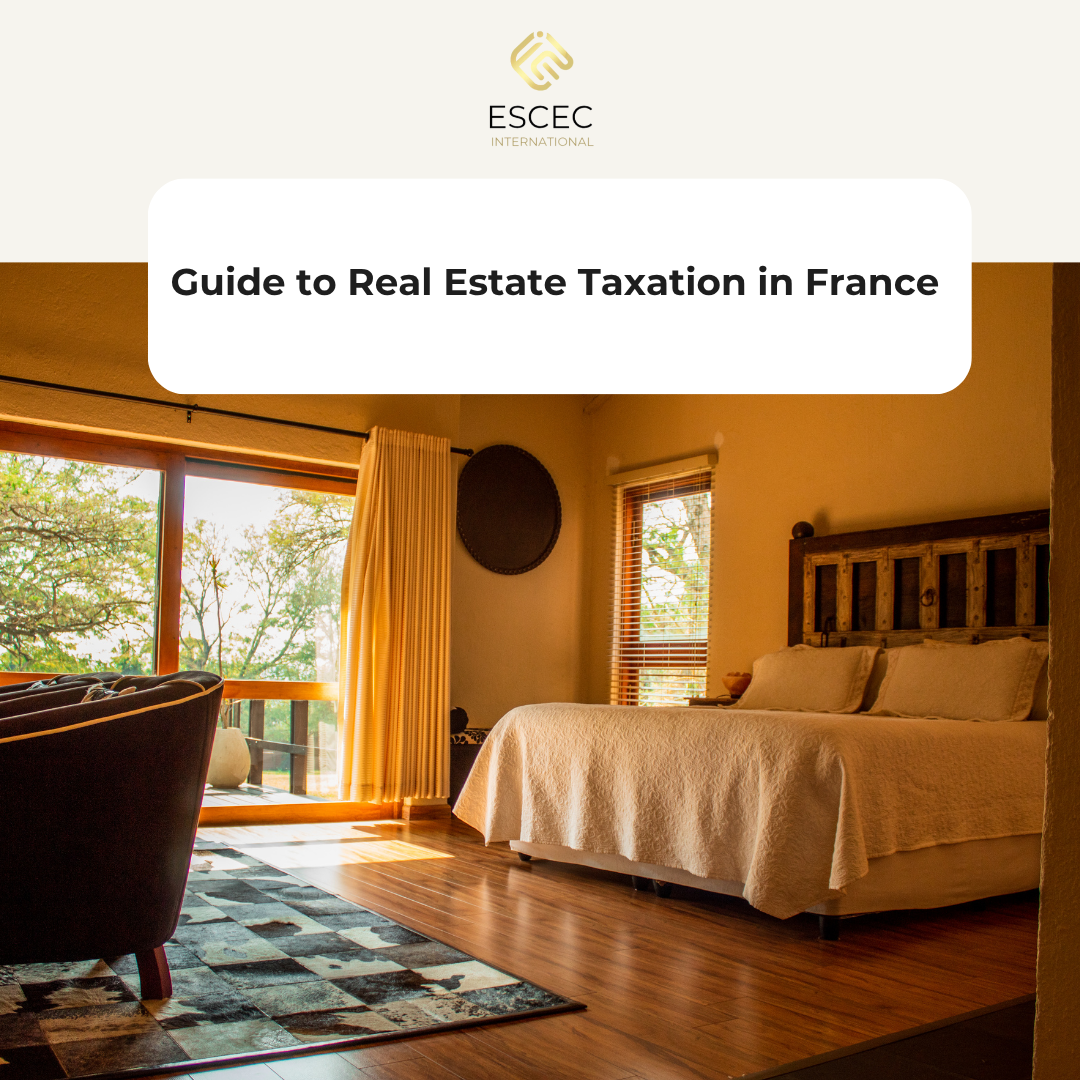Guide to Real Estate Taxation in France
Investing in property in France can be highly attractive, both for residents and for international investors. However, understanding how real estate taxation in France works is essential to protecting your returns, avoiding penalties, and ensuring compliance with French tax law. This guide explains the main property taxes, who must pay them, and how they are calculated.
The French Real Estate Tax System: Overview
France imposes different taxes on residential, commercial, and investment properties. These taxes contribute to municipalities and local public services, and they vary depending on:
-
The type of property (built/unbuilt, primary/secondary residence)
-
The property’s geographical location
-
Whether the owner is a resident or non-resident
-
The property’s market and cadastral value
The three main taxes applicable to property owners in France are:
-
Taxe foncière (property ownership tax)
-
Taxe d’habitation (residence tax – only for second homes)
-
Impôt sur la Fortune Immobilière (IFI – French real estate wealth tax)
Key Real Estate Taxes in France
1. Property Ownership Tax (Taxe foncière)
The taxe foncière is an annual tax due by all property owners (individuals or companies).
It applies even if the property is vacant or rented.
The amount is calculated based on the valeur locative cadastrale (cadastral rental value) adjusted by local rates set each year by the municipality or intercommunal authority.
2. Residence Tax (Taxe d’habitation – second homes only)
Since 2023, the taxe d’habitation no longer applies to primary residences.
However, it still applies to:
-
Second homes
-
Furnished dwellings not designated as a principal residence
-
Certain vacant properties in urban areas where the tax has not been removed
Some municipalities may also apply a surcharge in high-pressure zones (zones tendues) to discourage property vacancy.
3. Wealth Tax on Real Estate (IFI)
The Impôt sur la Fortune Immobilière (IFI) applies to households whose net real estate assets exceed €1.3 millionas of January 1 of each tax year.
IFI is progressive and applies only to real estate holdings (unlike the former ISF which included financial assets).
How Property Tax Is Calculated
Property taxes in France are based on the cadastral rental value of the property, which takes into account:
-
Location (commune)
-
Surface area and condition
-
Local services/infrastructure
-
Municipal tax rate
There is no uniform national tax rate — each commune decides its own, which is why taxation can differ widely from Paris to smaller cities or rural towns.
Deductions and Exemptions
Certain owners can benefit from exemptions or reductions, for example:
- Senior citizens with modest income
- Disabled individuals
- New constructions (temporary exemption in some communes)
- Energy renovation under certain conditions
- Rural/agricultural properties in specific cases
However, eligibility rules vary by commune and personal situation, so it is advisable to verify case by case.
Taxation for Non-Residents
Non-residents who own French property are subject to the same taxe foncière, taxe d’habitation (if second home), and potentially IFI.
If the property is rented, non-residents must also comply with French rental income taxation, though double taxation treaties (with more than 120 countries) help prevent being taxed twice on the same income.
Payment & Compliance
-
Tax notices (avis d’imposition) are issued online on the official portal impots.gouv.fr
-
Payments are typically due in September / October for taxe foncière and November/December for taxe d’habitation on second homes
-
Payments can be made online, via direct debit, or bank transfer
Conclusion: france real estate tax
French real estate taxation can seem complex, particularly if you are a non-resident or hold multiple properties. Understanding the obligations for taxe foncière, taxe d’habitation and IFI is essential to stay compliant and optimize your overall tax strategy.
If you would like personalized assistance, ESCEC International can help you analyse your tax exposure, reduce your tax burden legally, and ensure full compliance with French tax authorities — whether you are a resident or an international investor.
Looking to validate an AI-generated answer? Ask our expert today for reliable guidance!

